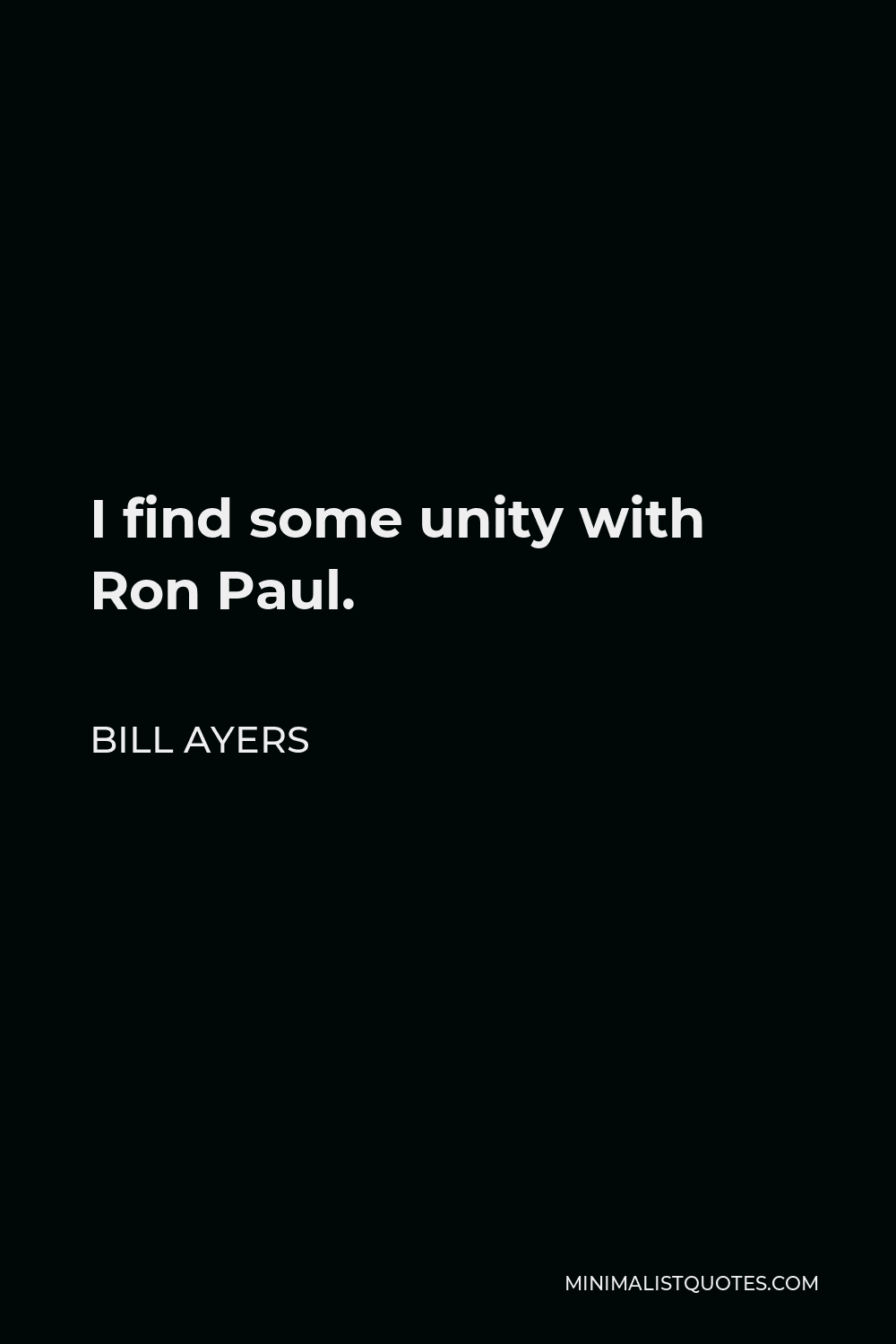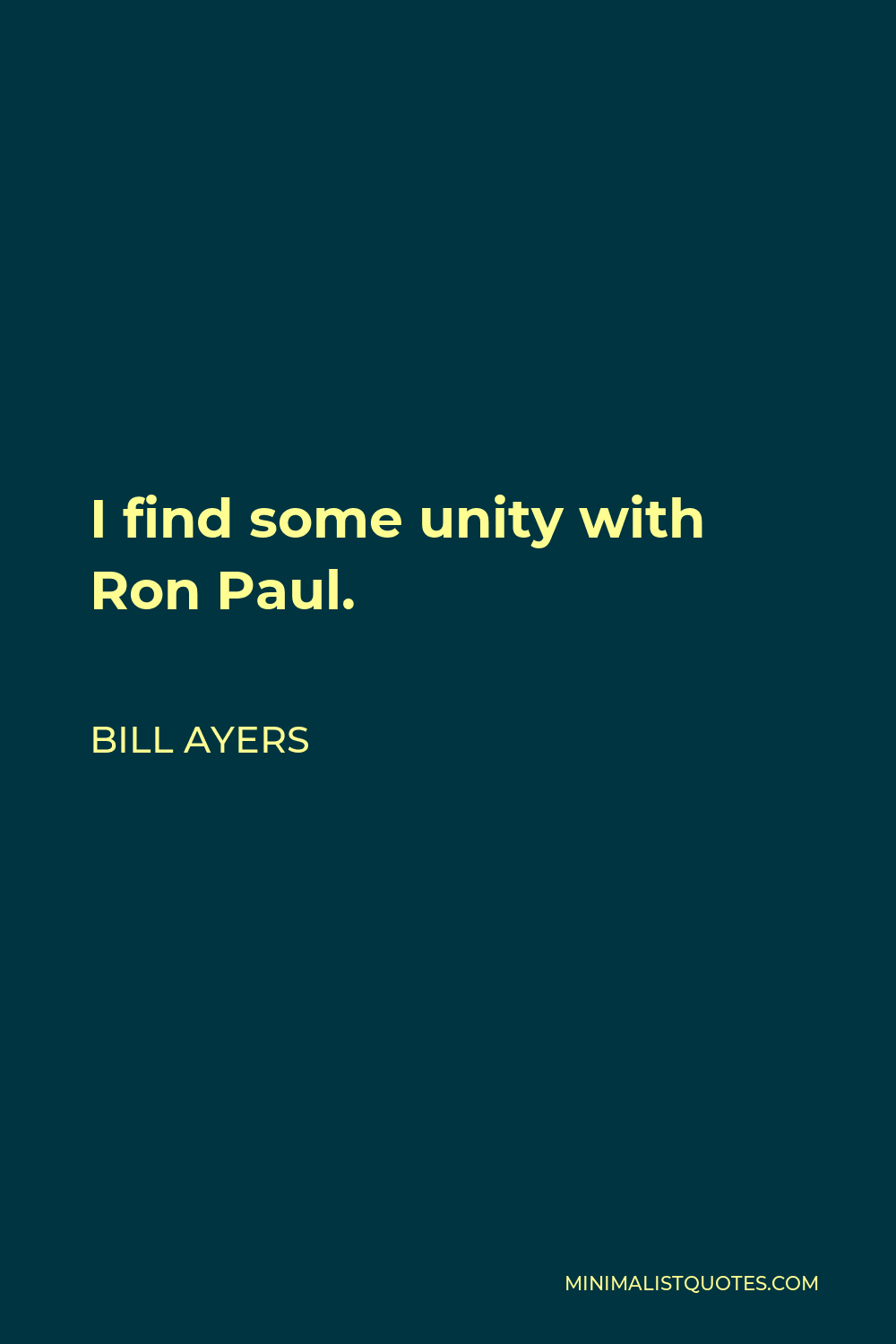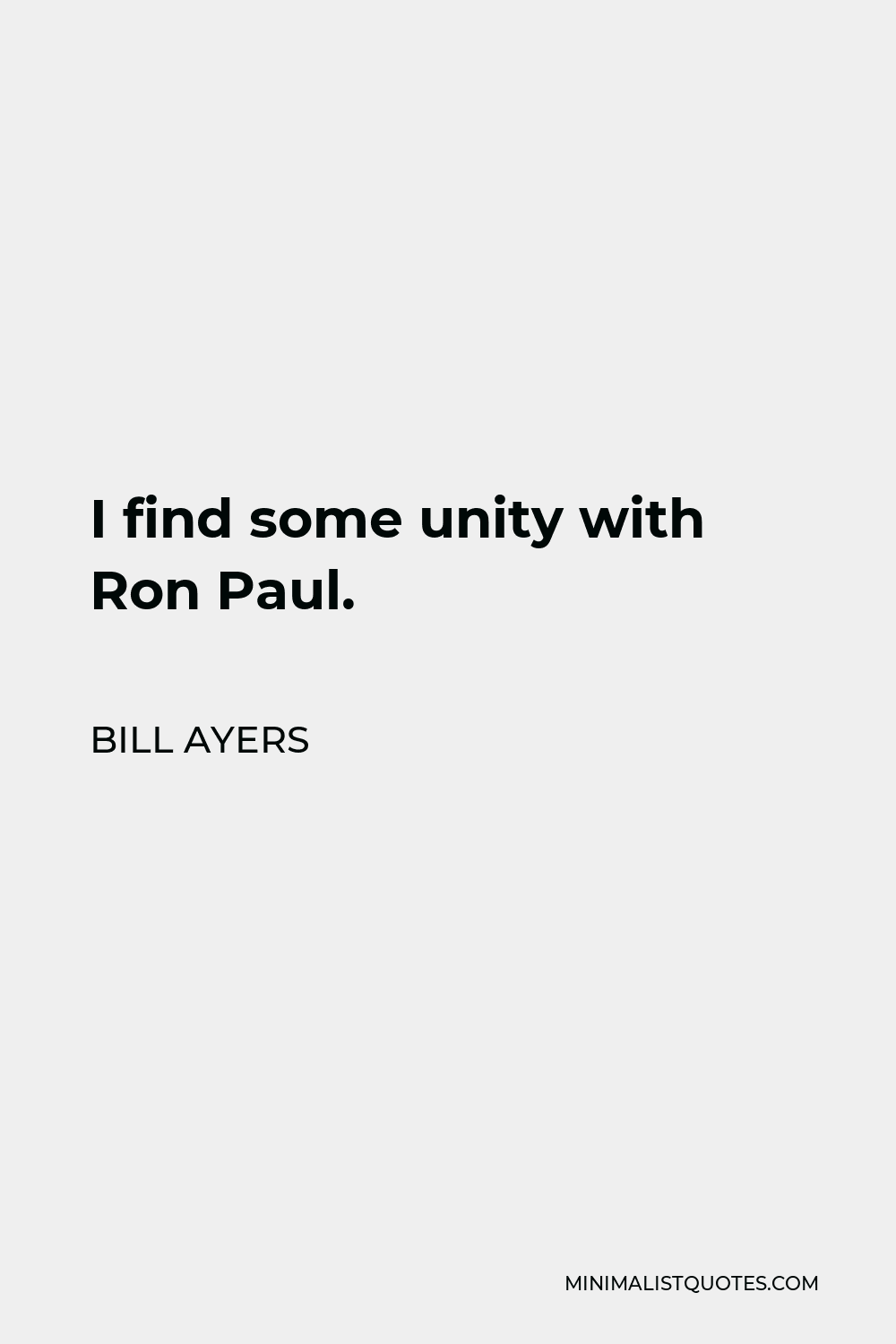The massive anti-war movement, which I was a part of and which was a major part of my life, never stopped the war in Vietnam.
BILL AYERSI find some unity with Ron Paul.
More Bill Ayers Quotes
-





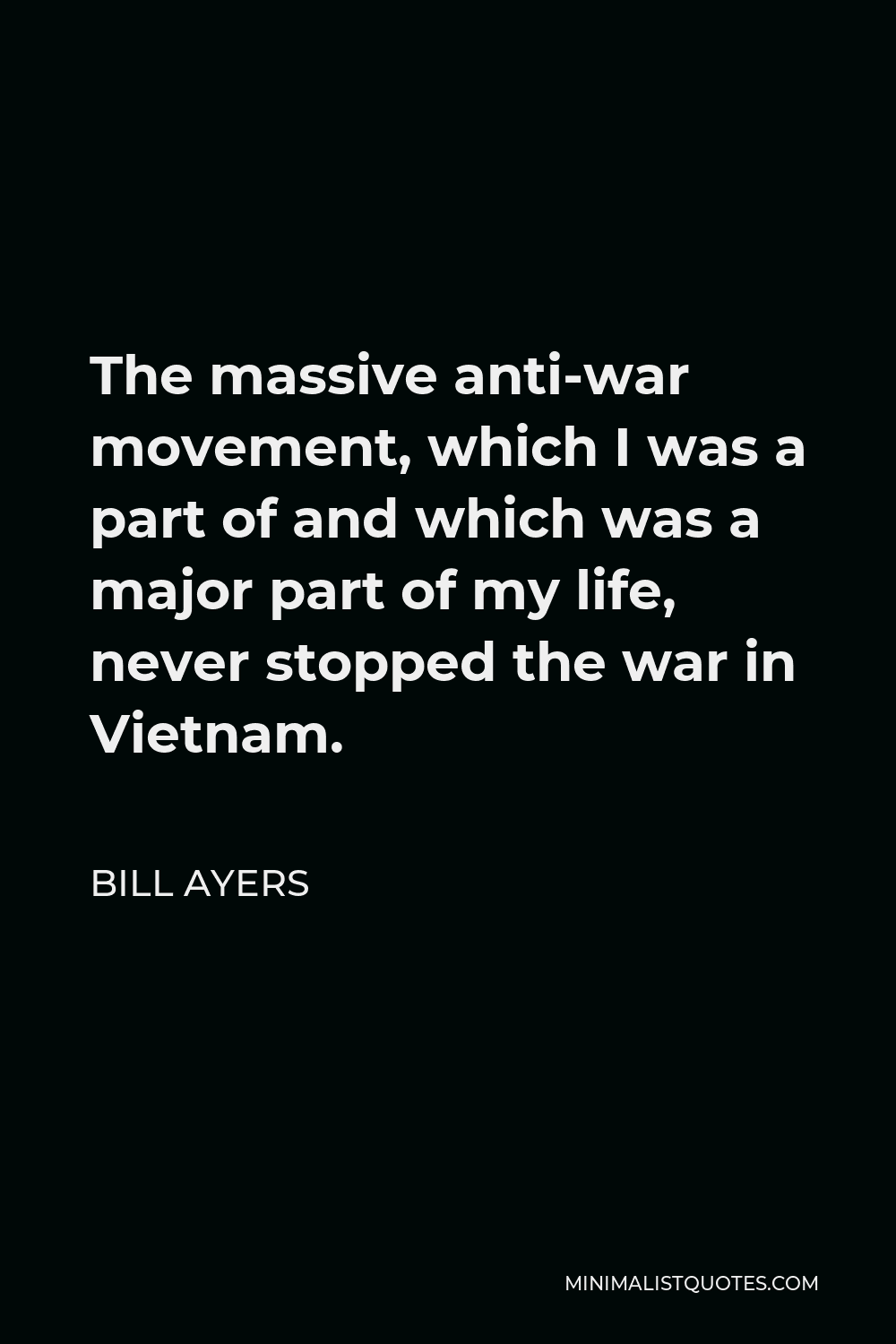
-





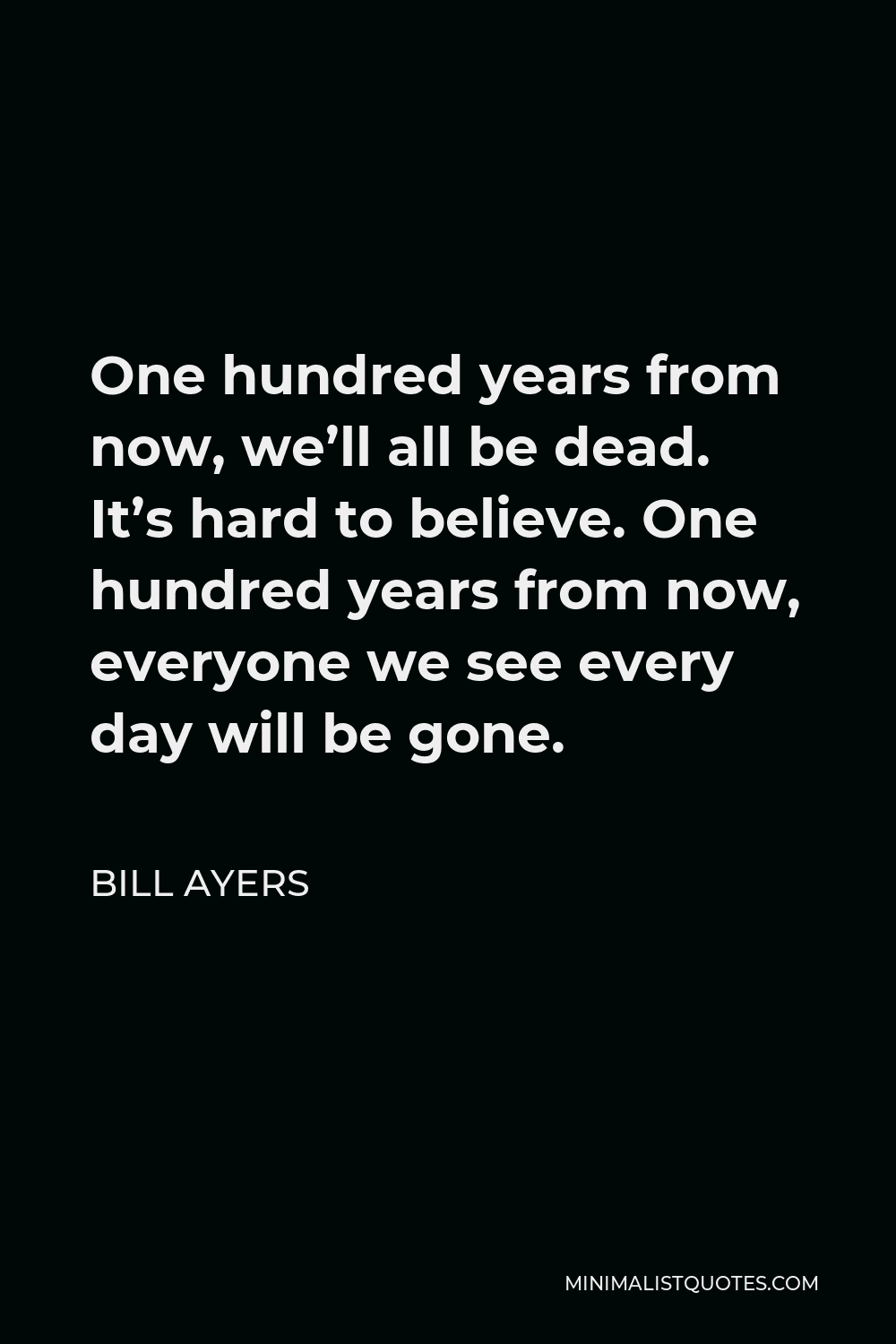
One hundred years from now, we’ll all be dead. It’s hard to believe. One hundred years from now, everyone we see every day will be gone.
BILL AYERS -





![Bill Ayers Quote - [Martin Luther King] King was a socialist and King was an activist who was really a radical by the end.](https://minimalistquotes.com/images/martin-luther-king-king-was-a-socialist-and-king-w.jpg)
[Martin Luther King] King was a socialist and King was an activist who was really a radical by the end.
BILL AYERS -





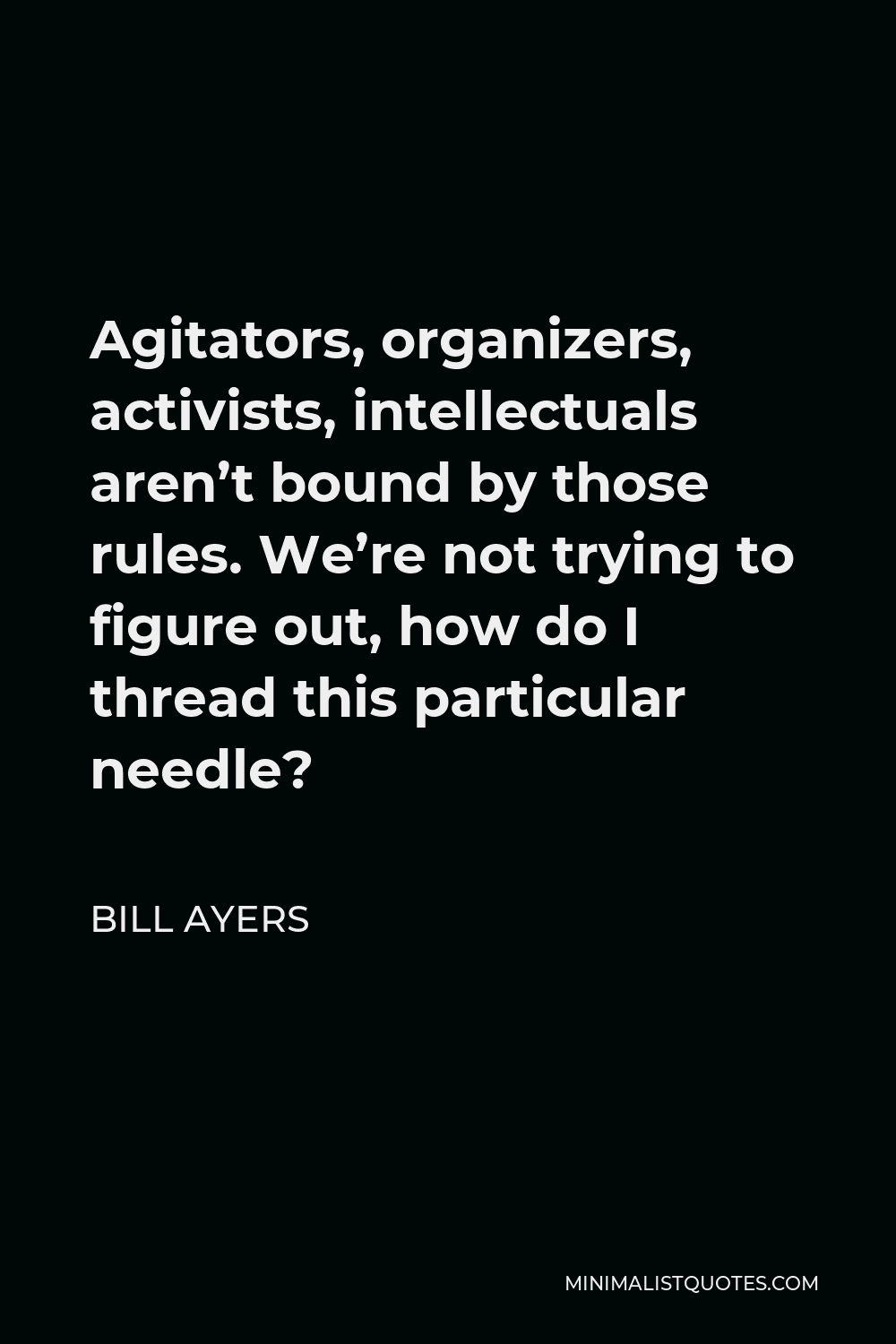
Agitators, organizers, activists, intellectuals aren’t bound by those rules. We’re not trying to figure out, how do I thread this particular needle?
BILL AYERS -





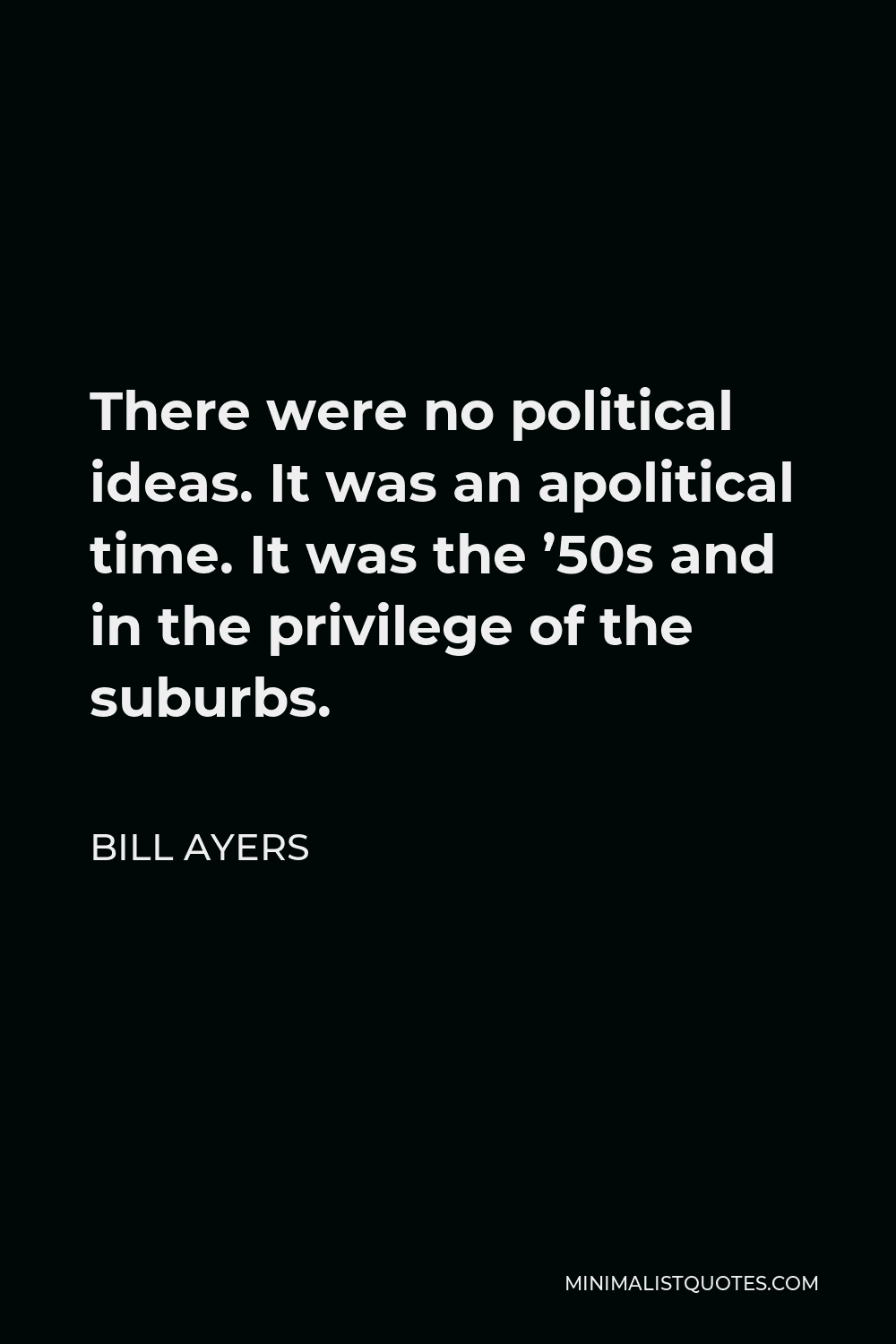
There were no political ideas. It was an apolitical time. It was the ’50s and in the privilege of the suburbs.
BILL AYERS -





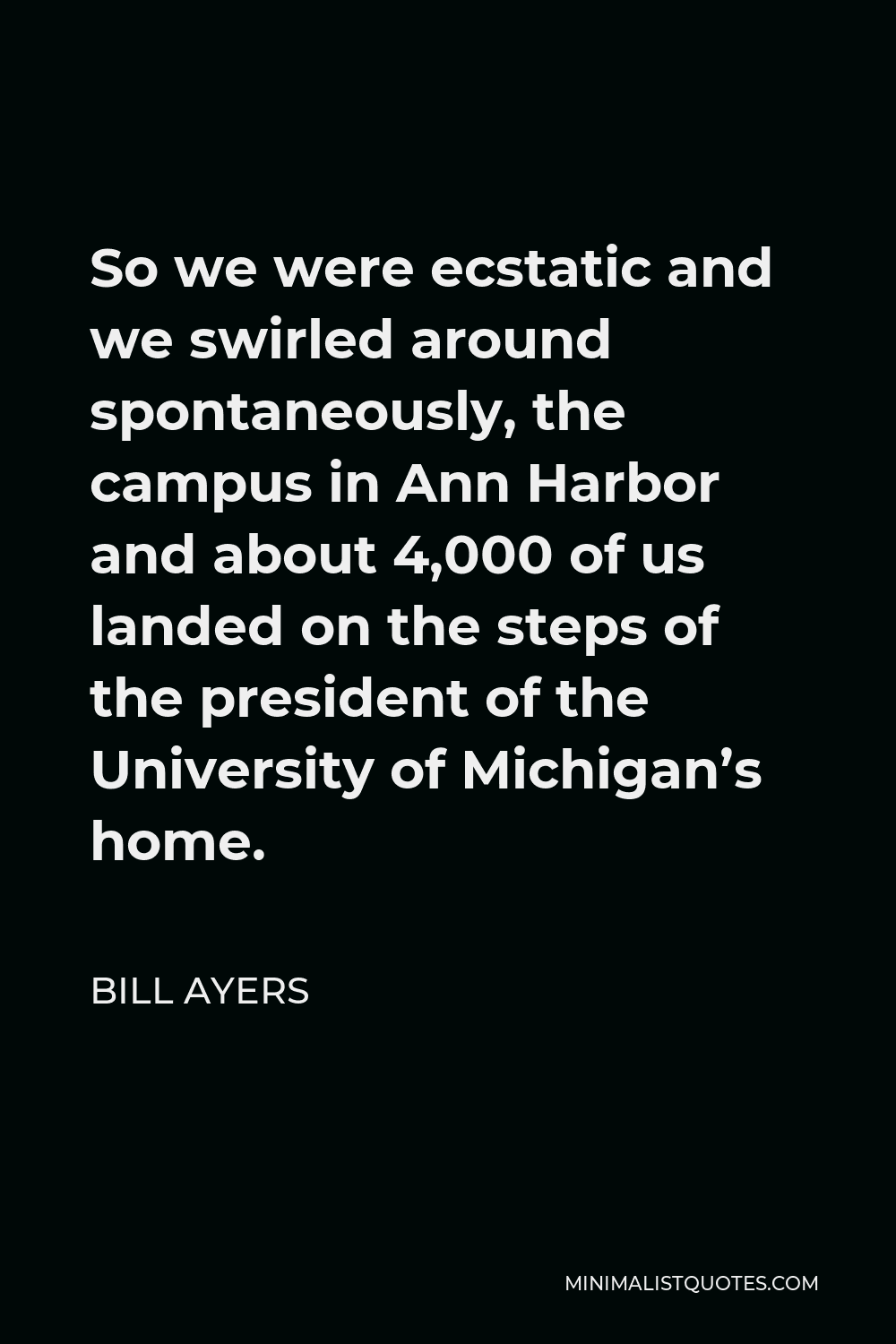
So we were ecstatic and we swirled around spontaneously, the campus in Ann Harbor and about 4,000 of us landed on the steps of the president of the University of Michigan’s home.
BILL AYERS -






I voted for Obama and I was delighted that he’s been elected.
BILL AYERS -





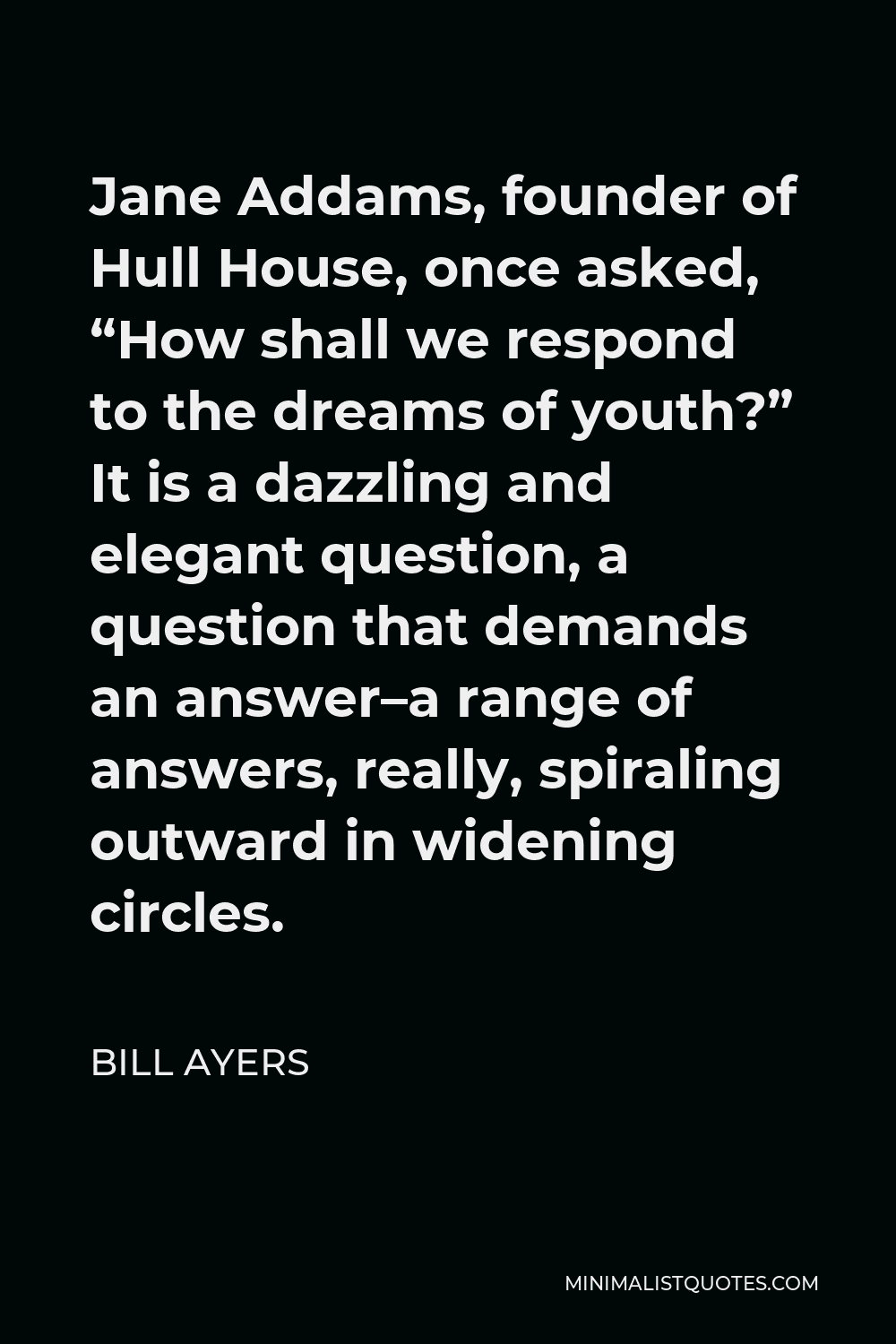
Jane Addams, founder of Hull House, once asked, “How shall we respond to the dreams of youth?” It is a dazzling and elegant question, a question that demands an answer–a range of answers, really, spiraling outward in widening circles.
BILL AYERS -





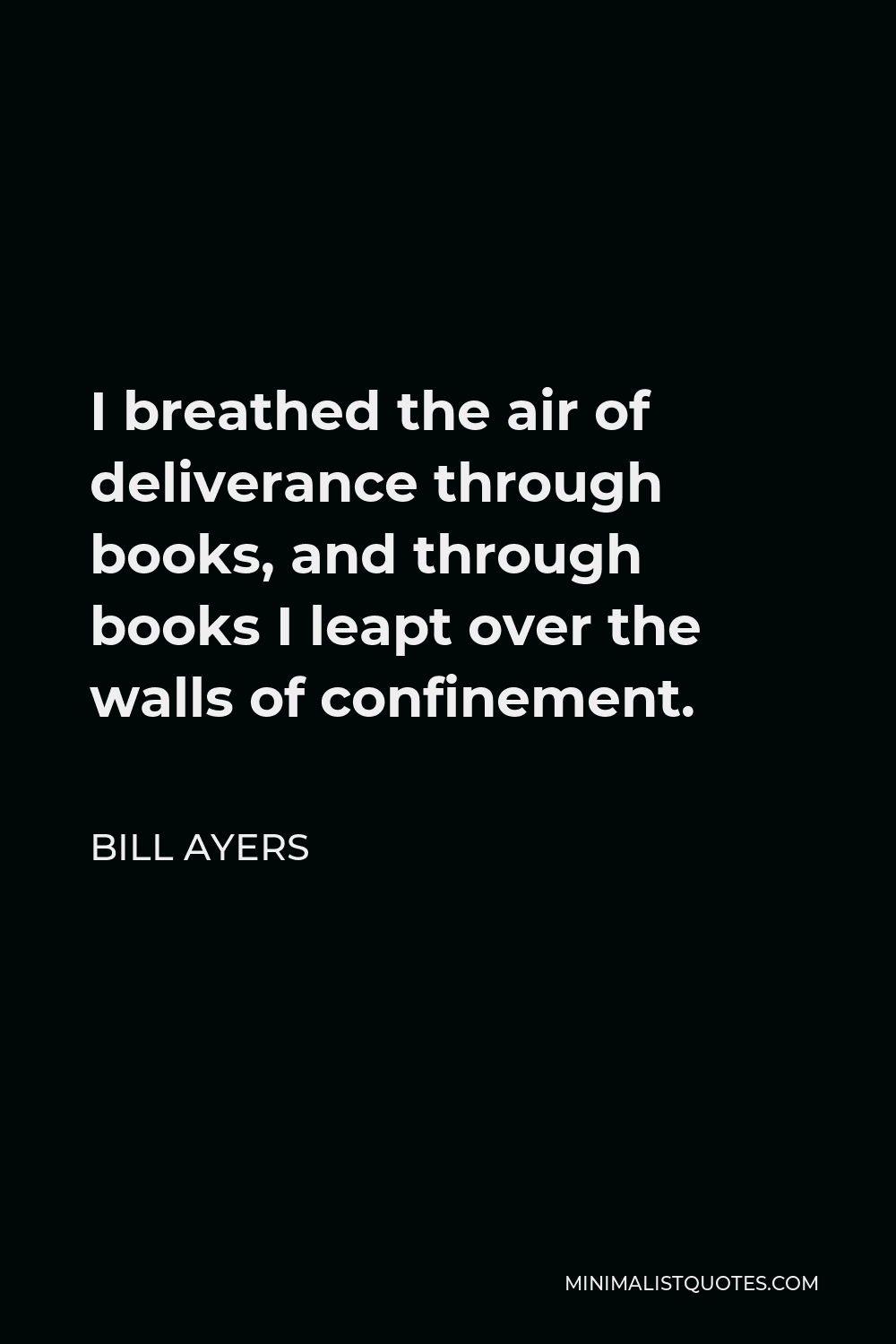
I breathed the air of deliverance through books, and through books I leapt over the walls of confinement.
BILL AYERS -






People camped out at his house, and wondering who’s coming to visit, who’s going to be the Secretary of State – that all struck me as inane and stupid.
BILL AYERS -





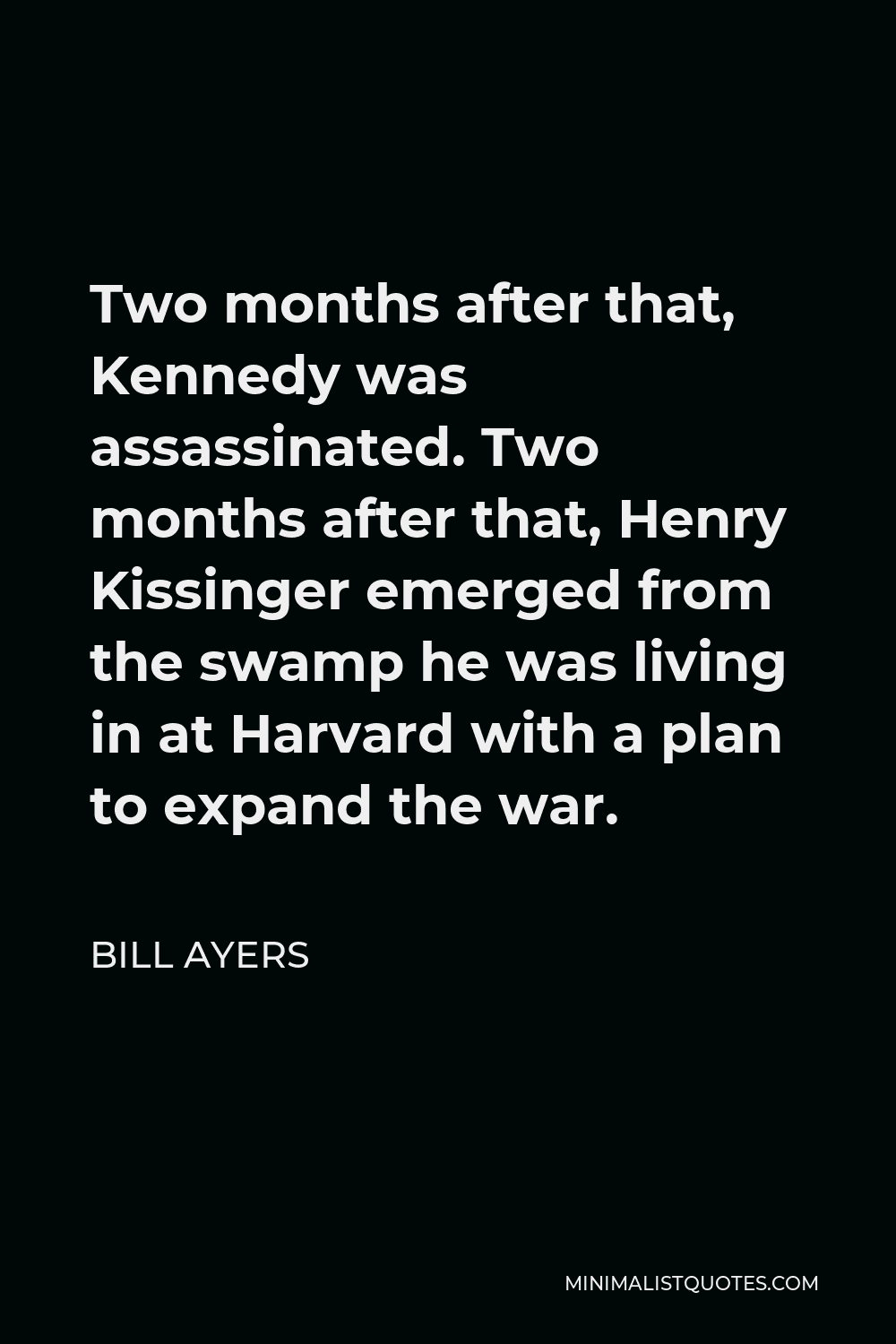
Two months after that, Kennedy was assassinated. Two months after that, Henry Kissinger emerged from the swamp he was living in at Harvard with a plan to expand the war.
BILL AYERS -





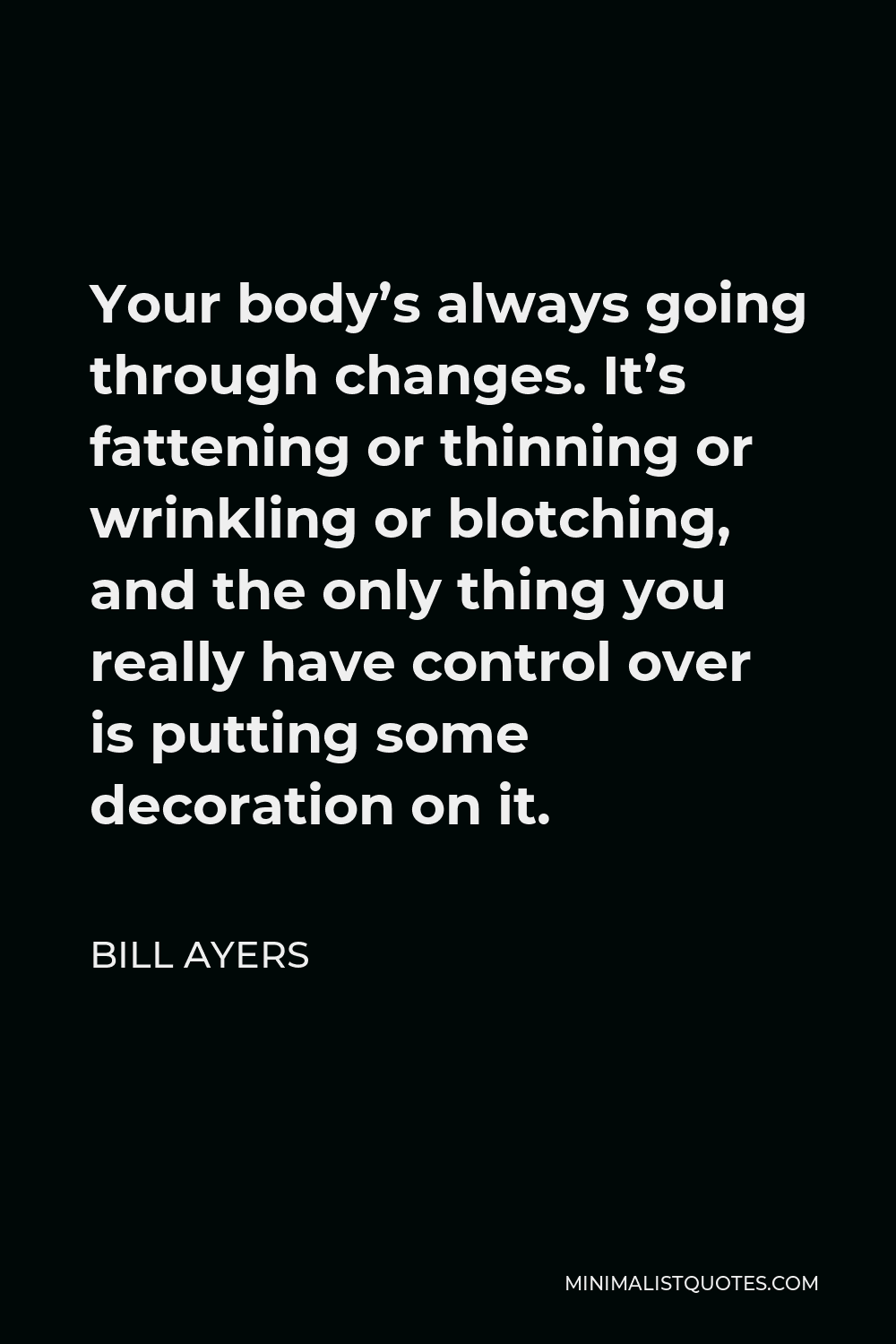
Your body’s always going through changes. It’s fattening or thinning or wrinkling or blotching, and the only thing you really have control over is putting some decoration on it.
BILL AYERS -





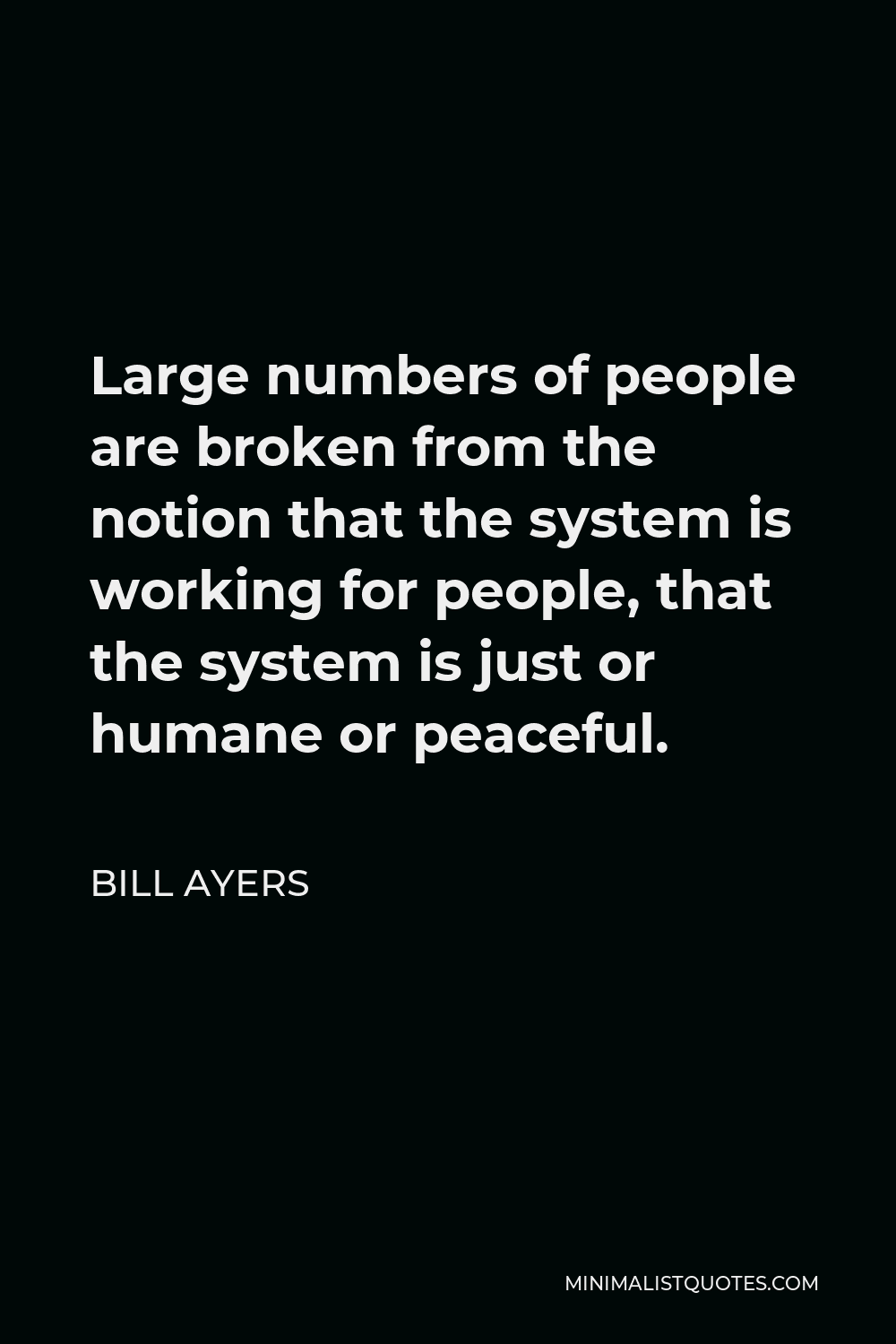
Large numbers of people are broken from the notion that the system is working for people, that the system is just or humane or peaceful.
BILL AYERS -





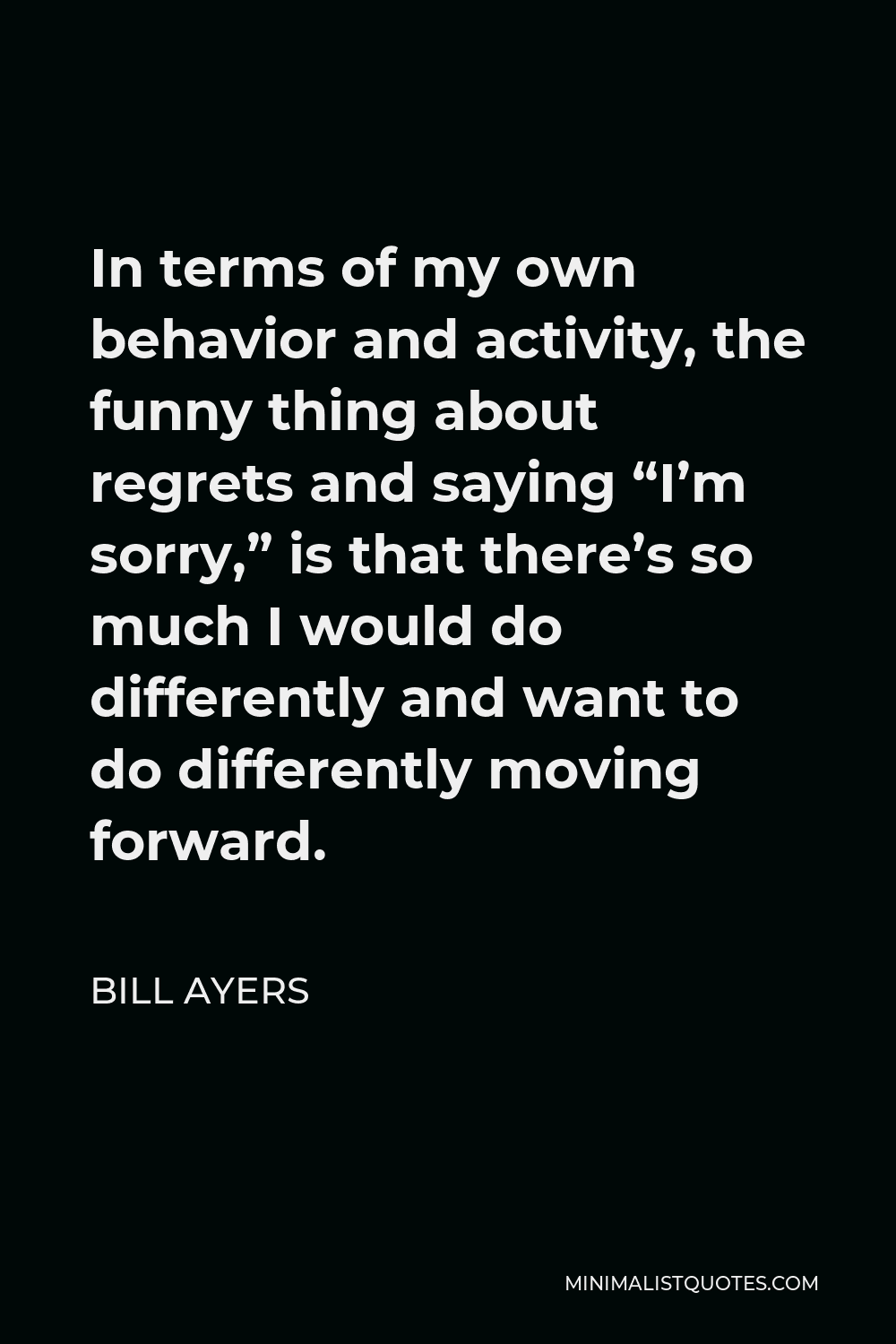
In terms of my own behavior and activity, the funny thing about regrets and saying “I’m sorry,” is that there’s so much I would do differently and want to do differently moving forward.
BILL AYERS -





![Bill Ayers Quote - Even there, [Barack] Obama’s generals, his Pentagon, they’re telling him what to do. And the force for gay rights is inevitable. And you can say Obama will help us, and maybe he will, but only if we have something on the ground that will make him help us.](https://minimalistquotes.com/images/even-there-barack-obamas-generals-his-pentagon-the.jpg)
Even there, [Barack] Obama’s generals, his Pentagon, they’re telling him what to do. And the force for gay rights is inevitable. And you can say Obama will help us, and maybe he will, but only if we have something on the ground that will make him help us.
BILL AYERS -





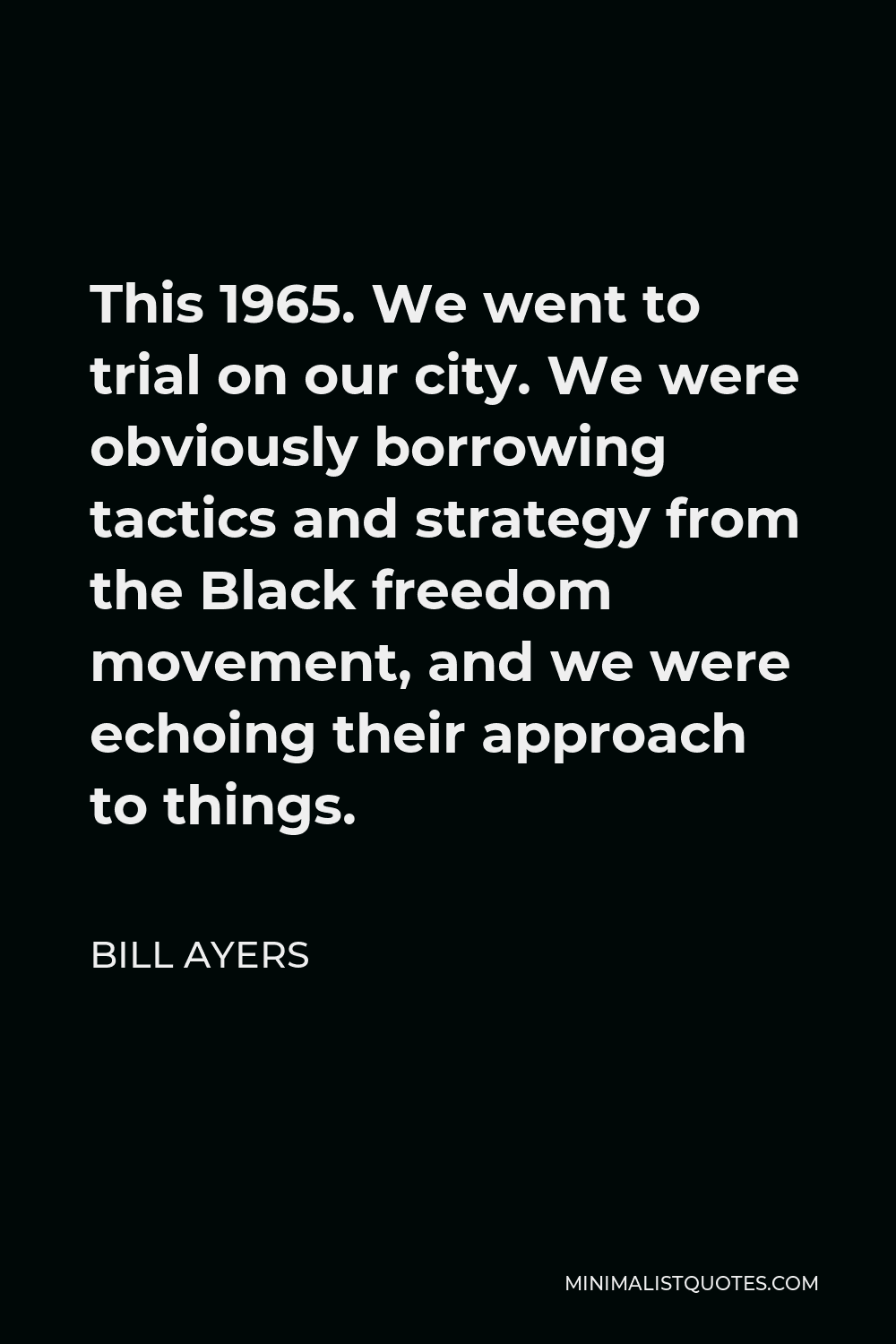
This 1965. We went to trial on our city. We were obviously borrowing tactics and strategy from the Black freedom movement, and we were echoing their approach to things.
BILL AYERS

